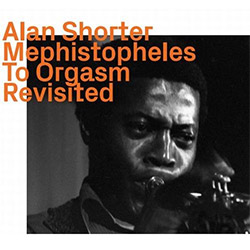
An exemplary set of explorative hard bop compositions from composer/trumpeter Alan Shorter, first Mephistopheles from Wayne Shorter's The All Seeing Eye in an octet with legends Wayne Shorter, James Spaulding, Freddie Hubbard, Grachan Moncur III, Herbie Hancock, Ron Carter & Joe Chambers; and then Alan Shorter's own Orgasm with Gato Barbieri, Charlie Haden, Reggie Johnson, Muhammad Ali & Rashied Ali.
In Stock
Quantity in Basket: None
Log In to use our Wish List
Shipping Weight: 3.00 units
Sample The Album:
Alan Shorter-flugelhorn, trumpet, tambourine
Wayne Shorter-tenor saxophone
James Spaulding-alto saxophone
Freddie Hubbard-trumpet
Grachan Moncur III-trombone
Herbie Hancock-piano
Ron Carter-doublebass
Joe Chambers-drum
Gato Barbieri-tenor saxophone
Charlie Haden-double bass
Reggie Johnson-double bass
Muhammad Ali-drums
Rashied Ali-drums
Click an artist name above to see in-stock items for that artist.
UPC: 752156116820
Label: ezz-thetics by Hat Hut Records Ltd
Catalog ID: ezz-thetics 1168
Squidco Product Code: 34234
Format: CD
Condition: New
Released: 2023
Country: Switzerland
Packaging: Cardboard Gatefold
Track 1 recorded at Van Gelder Studio, in Englewood Cliffs, New Jersey, on October 15th, 1965.
Tracks 2-7 recorded at A&R Recording, in NYC, Fall, 1968.
Orgasm originally released in 1969 as a vinyl LP on the Verve Records label with catalog code V6-8768. "Mephistopheles" originally released in 1966 as part of Wayne Shorter's vinyl LP The All Seeing Eye on the Blue Note label with catalog code BST 84219.
" "He was nomadic. The strongest and most lasting thing you can say about Alan is that he was an original, as original as you can get. He didn't want any academic guidelines to equip him to reinvent the wheel. If he saw something like that, he'd go the other way." (Wayne Shorter)
What little we can say we know about Alan Shorter, brass player, composer, and writer, older brother of Wayne Shorter, and enigmatic and only occasional figure on the edges of the avant scene from the mid-1960s until his death in 1988, comes primarily from his brother, quoted above; information from poet and critic Amiri Baraka, a friend from their adolescent neighborhood days in Newark and later as students at Howard University; and scattered reports from his sojourn in Europe. (David Grundy's extensive piece in the June 2020 posting of the online magazine Point of Departure collects these details and elaborates, interprets, and speculates into the broadest portrait we have.) The reality is, we may derive more about him from the evidence of his music, sparsely documented but significantly represented here, than any second-hand source.
Still, there are clues to be gleaned from his brother's comments. The description of him as "nomadic" implies a restlessness, a dissatisfaction with one's environment, and an unfulfilled desire for that which is just beyond one's reach. A rejection of pre-established conformity or "acceptable" solutions to questions of intent and identity confirms the impulsive nature of originality. And a creative focus based upon contrary perspectives and unpredictable decisions can achieve wondrous art but seldom results in popular success. This, along with a seeming reticence, or inability, to adapt one's own creative process to a shared give-and-take with others may, in part, account for Alan Shorter's neglect in light of his brother's renown.
Wayne acknowledged that, as youngsters in late-'40s, early-'50s Newark (both playing saxophone at the time), choosing to pursue the complex, audience perplexing innovations of bebop rather than a more accessible, danceable style of musical entertainment cast the brothers in the role of "weird" and rebellious outsiders. Separated in high school and by individual life choices thereafter, they proceeded upon different career paths, Alan first appearing on Archie Shepp's Four For Trane in 1964, now alternating between trumpet and flugelhorn (the reason for his change of instruments attributed, variously and unreliably, to either his not wishing to compete with his brother or a hallucinatory experience with spirit voices), and the next year guesting on the already established Wayne's album The All Seeing Eye in a performance of his own composition "Mephistopheles."
To call "Mephistopheles" haunting, or haunted, is a simplification; the trance-like, persistent, ominous bass and piano undercurrent is a Morse code communication of alienation, an ever-tightening thread of tension and constraint, by way of contrast with the free expression of solos, culminating in Joe Chambers' percussive eruption. (This strategy of contrast - conflicting points of view in a claustrophobic relationship - would intensify his music through the years.) There is, so far to my knowledge, no available explanation why, if only on the strength of this one remarkably dramatic track, Alan was not offered a session of his own until 1968 - or why, for that matter, he finally was. In the interim he worked, and recorded twice, with Marion Brown, including a second version, slightly different, of "Mephistopheles," and an equally evocative composition, "Iditus" (both can be heard on Marion Brown: Capricorn Moon to Juba Lee Revisited, ezz-thetics 1102).
The music of Orgasm sounds as if delayed, music and its conceptualization that Shorter may have been carrying around inside for several years. Was the distinction between Gato Barbieri's strangled tone and emotional urgency (possibly chosen to suggest a contrast with brother Wayne's less aggressive tendencies) and Shorter's characteristically contoured, considered solos intended to resemble the id and the ego, struggling for balanced coexistence? The various themes offer declarative statements threatened by rhythm section rebellions, interrupted by heated tenor outbursts - whether supported by the archetypal Bo Diddley beat of "Rapids," the mournful arco bass of "Joseph" (a dedication to the brothers' late father), or informing the lengthy, wandering unison of "Straits of Blagellan" (an imaginary combination, perhaps, of Black and Magellan, to be a figure doomed to explore dangerous uncharted waters - the Strait of Magellan described as "a somewhat tortuous course through numerous islands and channels" by Encyclopedia Britannica).
From here, Alan Shorter was to follow a similar need to explore, or escape into, new environments, spending some years in France, where among other connections he reunited with Archie Shepp, captured on a handful of live recordings and haphazard studio sessions, as if completing an ironic circle. On his return to America opportunities to perform his intensely personal vision of "New Music" were few and recording prospects nonexistent. But this music survives, and speaks eloquently for him."-Art Lange, from the liner notes

The Squid's Ear!
Artist Biographies
• Show Bio for Alan Shorter "Alan Shorter (May 29, 1932 - April 5, 1988) was a free jazz trumpet and flugelhorn player, and the older brother of composer and saxophone player Wayne Shorter. Shorter was born in the Ironbound District in Newark, New Jersey. He started on alto saxophone, but switched to trumpet after graduating from high school. He attended Howard University but soon rebelled against the ultra-conservative atmosphere and dropped out. He later graduated from New York University. He played his first professional gigs with a local bebop big band called the Jackie Bland Band (other members included his brother Wayne, trombonist Grachan Moncur III, and pianist Walter Davis, Jr.). He was very much a bebop player in his early years, but soon gravitated towards free jazz, and with the exception of six months he spent in a US Army Band, continued to play in that style for the rest of his career. Shorter recorded two albums as a leader: Orgasm (1968) and Tes Esat (1971). Both were out of print for many years until re-issued by Verve Records in 2004 and 2005, respectively. He also recorded five albums with saxophonist Archie Shepp (1964-1970), including the classic Four for Trane (1964), two albums with Marion Brown (1965-1966), one album with Alan Silva (1970), and made an appearance on one of his brother's albums (The All Seeing Eye ). Several of these albums feature his unusual compositions, his most famous being "Mephistopheles". In the mid-1960s, Shorter moved to Europe, leading his own avant-garde gigs in Geneva and Paris. His style of free jazz sometimes proved to be too far-out for European audiences (his brother remembered that Shorter's gigs in Europe would often end with him responding to the crowd's boos by yelling, "You're not ready for me yet!"), but he generally found European audiences more receptive than those in the U.S. Eventually, he returned to the United States, where he taught briefly at Bennington College but otherwise faded into obscurity. He died of a ruptured aorta in Los Angeles, California in 1988, at age 56, shortly after becoming engaged to Ruth Ann Hancock, a cousin of Herbie Hancock. Shorter's playing is comparable to Don Cherry, but with a more aggressive, anarchic bent. His own albums feature his groups functioning as a unit, rather than focusing on his own virtuosity (or lack thereof). Reportedly, his musical style is much like he was personally: deep and intellectual, but intentionally strange (his childhood nickname was "Doc Strange")." ^ Hide Bio for Alan Shorter • Show Bio for Wayne Shorter "Wayne Shorter (born August 25, 1933) is an American jazz saxophonist and composer. Shorter came to prominence in the late 1950s as a member of, and eventually primary composer for, Art Blakey's Jazz Messengers. In the 1960s, he joined Miles Davis's Second Great Quintet, and then co-founded the jazz fusion band Weather Report. He has recorded over 20 albums as a bandleader. Many Shorter compositions have become jazz standards, and his music has earned worldwide recognition, critical praise and commendation. Shorter has won 11 Grammy Awards. He is acclaimed for his mastery of the soprano saxophone since switching his focus from the tenor in the late 1960s and beginning an extended reign in 1970 as Down Beat's annual poll-winner on that instrument, winning the critics' poll for 10 consecutive years and the readers' for 18. The New York Times' Ben Ratliff described Shorter in 2008 as "probably jazz's greatest living small-group composer and a contender for greatest living improviser". In 2017, he was awarded the Polar Music Prize." ^ Hide Bio for Wayne Shorter • Show Bio for James Spaulding "A superior alto saxophonist and flutist who can shift from bop and hard bop to very adventurous flights, James Spaulding gained his greatest recognition while a member of Freddie Hubbard's quintet in the mid-'60s. He studied at the Chicago Cosmopolitan School of Music and then gigged and recorded regularly with Sun Ra during 1957-1961. During the 1960s, Spaulding (who worked with Max Roach and Randy Weston) was in demand not only by Hubbard, but for Blue Note recordings by Joe Henderson, Wayne Shorter, Stanley Turrentine, and Larry Young, among others. He had stints during the next couple of decades with a wide variety of top artists, including Charles Tolliver, Bobby Hutcherson, David Murray, and (for a brief period) the World Saxophone Quartet, but is still vastly underrated. James Spaulding has recorded as a leader for Storyville (a Duke Ellington tribute set in 1976) and several dates for Muse (1988-1993)."-Scott Yanow ^ Hide Bio for James Spaulding • Show Bio for Freddie Hubbard "One of the greatest trumpet virtuosos ever to play in the jazz idiom, and arguably one of the most influential, Freddie Hubbard played mellophone and then trumpet in his school band and studied at the Jordan Conservatory with the principal trumpeter of the Indianapolis Symphony Orchestra. As a teenager, he worked with Wes and Monk Montgomery and eventually founded his own band, the Jazz Contemporaries, with bassist Larry Ridley and saxophonist James Spaulding. After moving to New York in 1958, he quickly astonished fans and critics alike with his depth and maturity, playing with veteran artists Philly Joe Jones, Sonny Rollins, Slide Hampton, J.J. Johnson, Eric Dolphy, and Quincy Jones, with whom he toured Europe. In June 1960, on the recommendation of Miles Davis, he recorded his first solo album, Open Sesame, for Blue Note Records, just weeks after his 22nd birthday. Within the next 10 months, he recorded two more albums, Goin' Up and Hub Cap, and then in August 1961 made what many consider to be his masterpiece, Ready for Freddie, which was also his first Blue Note collaboration with Wayne Shorter. That same year, Hubbard joined Art Blakey's Jazz Messengers, replacing Lee Morgan. By now, he had indisputably developed his own sound and had won the DownBeat "New Star" award on trumpet. Hubbard remained with the Jazz Messengers until 1964, when he left to form his own small group, which over the next years featured Kenny Barron and Louis Hayes. Throughout the 1960s, Hubbard also played in bands led by other legends, including Max Roach, and was a significant presence on the Blue Note recordings of Herbie Hancock, Wayne Shorter and Hank Mobley. Hubbard was also featured on four classic, groundbreaking 1960s sessions: Ornette Coleman's Free Jazz, Oliver Nelson's Blues and the Abstract Truth, Eric Dolphy's Out to Lunch, and John Coltrane's Ascension. In the 1970s, Hubbard achieved his greatest popular success with a series of crossover albums on Atlantic and CTI Records, including the Grammy Award-winning First Light. He returned to acoustic hard bop in 1977 when he toured with the V.S.O.P. quintet, which teamed him with the members of Miles Davis' 1960s ensemble: Wayne Shorter, Herbie Hancock, Ron Carter, and Tony Williams. In the 1980s, Hubbard again led his own groups, often in the company of Joe Henderson, and he collaborated with fellow trumpet legend Woody Shaw on a series of albums for the Blue Note and Timeless labels." ^ Hide Bio for Freddie Hubbard • Show Bio for Grachan Moncur III "Grachan Moncur III (born June 3, 1937) is an American jazz trombonist. He is the son of jazz bassist Grachan Moncur II and the nephew of jazz saxophonist Al Cooper. Born in New York City (his father's father was from the Bahamas) and raised in Newark, New Jersey, Grachan Moncur III began playing the cello at the age of nine, and switched to the trombone when he was 11. In high school he attended the Laurinburg Institute in North Carolina, the private school where Dizzy Gillespie had studied. While still at school he began sitting in with touring jazz musicians on their way through town, including Art Blakey and Jackie McLean, with whom he formed a lasting friendship. After high school Moncur toured with Ray Charles (1959–62), Art Farmer and Benny Golson's Jazztet (1962), and Sonny Rollins. He took part in two classic Jackie McLean albums in the early 1960s, One Step Beyond and Destination... Out!, to which he also contributed the bulk of compositions and which led to two influential albums of his own for Blue Note Records, Evolution (1963) with Jackie McLean and Lee Morgan, and Some Other Stuff (1964) with Herbie Hancock and Wayne Shorter. Moncur joined Archie Shepp's ensemble and recorded with other avant-garde players such as Marion Brown, Beaver Harris and Roswell Rudd (the other big name in American free jazz trombone). During a stay in Paris in the summer of 1969, he recorded two albums as a leader for the famous BYG Actuel label, New Africa and Aco Dei de Madrugada, as well as appearing as a sideman on numerous other releases of the label. In 1974, the Jazz Composer's Orchestra commissioned him to write Echoes of Prayer (1974), a jazz symphony featuring a full orchestra plus vocalists and jazz soloists. His sixth album as a leader, Shadows (1977) was released only in Japan. Unfortunately, he was subsequently plagued by health problems and copyright disputes and recorded only rarely. Through the 1980s he recorded with Cassandra Wilson (1985), played occasionally with the Paris Reunion Band and Frank Lowe, appeared on John Patton's Soul Connection (1983), but mostly concentrated on teaching. In 2004 he re-emerged with a new album (Exploration) on Capri Records featuring Grachan's compositions arranged by Mark Masters for an octet including Tim Hagans and Gary Bartz." ^ Hide Bio for Grachan Moncur III • Show Bio for Herbie Hancock "Herbert Jeffrey Hancock (born April 12, 1940) is an American pianist, keyboardist, bandleader, composer and actor. Hancock started his career with Donald Byrd. He shortly thereafter joined the Miles Davis Quintet, where he helped to redefine the role of a jazz rhythm section and was one of the primary architects of the post-bop sound. In the 1970s, Hancock experimented with jazz fusion, funk, and electro styles. Hancock's best-known compositions include the jazz standards "Cantaloupe Island", "Watermelon Man", "Maiden Voyage", and "Chameleon", as well as the hit singles "I Thought It Was You" and "Rockit". His 2007 tribute album River: The Joni Letters won the 2008 Grammy Award for Album of the Year, only the second jazz album to win the award, after Getz/Gilberto in 1965. [...]" ^ Hide Bio for Herbie Hancock • Show Bio for Ron Carter "Ron Carter is among the most original, prolific, and influential bassists in jazz. He has recorded over 2200 albums, and has a Guinness world record to prove it! In Jazz: Over his 60 year career, he has recorded with so many of the jazz greats greats: Lena Horne, Bill Evans, B.B. King, Dexter Gordon, Wes Montgomery, Bobby Timmons, Eric Dolphy, Cannonball Adderley and Jaki Byard to name a few. From 1963 to 1968, he was a member of the acclaimed Miles Davis Quintet. In other genres: After leaving the quintet he embarked on a prolific 50-year free lance career that spanned vastly different music genres and continues to this day. He recorded with Aretha Franklin, appeared on the seminal hip-hop album Low End Theory with a Tribe Called Quest, wrote and recorded pieces for string quartets and Bach chorales for 2-8 basses and accompanied Danny Simmons on a spoken word album. As a leader: Carter spends at least half the year on worldwide tours with his various groups. The Ron Carter Trio, The Ron Carter quartet, the Ron Carter Nonet and Ron Carter’s Great Big Band. He has recorded multiple albums with his groups. As an author: Carter shares his expertise in the series of books he authored, where he explains his creative process and teaches bassists of all levels to improve their skills and develop their own unique sound. He also penned his autobiography “Finding the Right Notes” which is available in print and also as an audiobook read by the Maestro himself. As a teacher: Carter has lectured, conducted, and performed at clinics and master classes, instructing jazz ensembles and teaching the business of music at numerous universities. He was Artistic Director of the Thelonious Monk Institute of Jazz Studies while it was located in Boston and, after 18 years on the faculty of the Music Department of The City College of New York, he is now Distinguished Professor Emeritus, he currently teaches at Manhattan School of Music. In film scoring: In addition to scoring and arranging music for many films, including some projects for Public Broadcasting System, Carter composed music for A Gathering of Old Men, starring Lou Gosset Jr., The Passion of Beatrice directed by Bertrand Tavernier, and Blind Faith starring Courtney B. Vance. Film appearances: Most jazz documentaries feature the Maestro because of his indelible contribution to the genre. Ken Burns “Jazz”, “Birth of the Cool” about Miles Davis, "It Must be Schwing", the story of the Blue Note and many more. He also appeared as himself in HBO’s hit series “Treme” and was the bassist on soundtracks of Twin Peaks, Bird, and way too many others to mention. Education: Carter earned a bachelor of music degree from the Eastman School in Rochester and a master's degree in double bass from the Manhattan School of Music in New York City. He has also received five honorary doctorates, from the New England Conservatory of Music, Manhattan School of Music, University of Rochester, Juilliard and Berklee, and was the 2002 recipient of the prestigious Hutchinson Award from the Eastman School at the University of Rochester." ^ Hide Bio for Ron Carter • Show Bio for Joe Chambers "Joe Chambers (born June 25, 1942 in Chester, Pennsylvania, United States) is an American jazz drummer, pianist, vibraphonist and composer. He attended the Philadelphia Conservatory for one year. In the 1960s and 1970s, Chambers gigged with many high-profile artists such as Eric Dolphy, Charles Mingus, Wayne Shorter, and Chick Corea. During this period, his compositions were featured on some of the albums on which he appeared, such as those with Freddie Hubbard and Bobby Hutcherson. He has released fifteen albums as a bandleader and been a member of several incarnations of Max Roach's M'Boom percussion ensemble. He has also taught, including at the New School for Jazz and Contemporary Music in New York City, where he leads the Outlaw Band. In 2008, he was hired to be the Thomas S. Kenan Distinguished Professor of Jazz in the Department of Music at the University of North Carolina Wilmington." ^ Hide Bio for Joe Chambers • Show Bio for Gato Barbieri "Leandro "Gato" Barbieri (28 November 1932 – 2 April 2016) was an Argentine jazz tenor saxophonist who rose to fame during the free jazz movement in the 1960s and is known for his Latin jazz recordings of the 1970s. His nickname, Gato, is Spanish for "cat". Born to a family of musicians, Barbieri began playing music after hearing Charlie Parker's "Now's the Time". He played the clarinet and later the alto saxophone while performing with the Argentinean pianist Lalo Schifrin in the late 1950s. By the early 1960s, while playing in Rome, he also worked with the trumpeter Don Cherry. By now influenced by John Coltrane's late recordings, as well as those from other free jazz saxophonists such as Albert Ayler and Pharoah Sanders, he began to develop the warm and gritty tone with which he is associated. In the late 1960s, he was fusing music from South America into his playing and contributed to multi-artist projects like Charlie Haden's Liberation Music Orchestra and Carla Bley's Escalator Over The Hill. His score for Bernardo Bertolucci's 1972 film Last Tango in Paris earned him a Grammy Award and led to a record deal with Impulse! Records. By the mid-1970s, he was recording for A&M Records and moved his music towards soul-jazz and jazz-pop. Caliente! (1976) included his best known song, a rendition of Carlos Santana's "Europa". That and the follow-up album, Ruby Ruby (1977) were both produced by fellow musician and label co-founder, Herb Alpert. Although he continued to record and perform well into the 1980s, including composing the scores to films such as Firepower (1979) and Strangers Kiss (1983), the death of his wife Michelle led him to withdraw from the public arena. He returned to recording and performing in the late 1990s, composing original scores at the behest of friend Bahman Maghsoudlou for Amir Naderi's Manhattan by Numbers (1991) and Daryush Shokof's Seven Servants (1996). The album Qué Pasa (1997) moved more into the style of smooth jazz. Barbieri was the inspiration for the character Zoot in the fictional Muppet band Dr. Teeth and The Electric Mayhem. On April 2, 2016, Barbieri died of pneumonia in New York City at the age of 83. On 25 June 2019, The New York Times Magazine listed Gato Barbieri among hundreds of artists whose material was reportedly destroyed in the 2008 Universal fire." ^ Hide Bio for Gato Barbieri • Show Bio for Charlie Haden "Charles Edward Haden (August 6, 1937 - July 11, 2014) was an American jazz double bass player, bandleader, composer and educator whose career spanned more than 50 years. In the late 1950s, he was an original member of the ground-breaking Ornette Coleman Quartet. Haden revolutionized the harmonic concept of bass playing in jazz. German musicologist Joachim-Ernst Berendt wrote that Haden's "ability to create serendipitous harmonies by improvising melodic responses to Coleman's free-form solos (rather than sticking to predetermined harmonies) was both radical and mesmerizing. His virtuosity lies (...) in an incredible ability to make the double bass 'sound out'. Haden cultivated the instrument's gravity as no one else in jazz. He is a master of simplicity which is one of the most difficult things to achieve." Haden played a vital role in this revolutionary new approach, evolving a way of playing that sometimes complemented the soloist and sometimes moved independently. In this respect, as did his predecessor bassists Jimmy Blanton and Charles Mingus, Haden helped liberate the bassist from a strictly accompanying role to becoming a more direct participant in group improvisation. In 1969, he formed his first band, the Liberation Music Orchestra, featuring arrangements by pianist Carla Bley. In the late 1960s, he became a member of pianist Keith Jarrett's trio, quartet and quintet. In the 1980s, he formed his band, Quartet West. Haden also often recorded and performed in a duo setting, with musicians including guitarist Pat Metheny and pianist Hank Jones." ^ Hide Bio for Charlie Haden • Show Bio for Reggie Johnson "Reginald Volney Johnson (born December 13, 1940) is an American jazz double-bassist. Johnson was born in Owensboro, Kentucky. After playing trombone with school orchestras and army bands, he switched to double bass, and started working with musicians such as Bill Barron and recording with Archie Shepp in the mid-1960s, before joining Art Blakey's band for a month-long residency at the Five Spot Café in December 1965, and then going on to The Lighthouse nightclub in Hermosa Beach, California, where they recorded the live album, Buttercorn Lady, at the beginning of 1966, with a line-up, comprising Blakey, Frank Mitchell, Chuck Mangione, Keith Jarrett, and Johnson. He has also played and/or recorded with Bill Dixon, Sun Ra, and Burton Greene, Lonnie Liston Smith, Stanley Cowell, Bobby Hutcherson, Harold Land, Blue Mitchell, Walter Bishop Jr., Sonny Rollins, Sonny Stitt, Sarah Vaughan, Carmen McRae, Art Pepper, Kenny Burrell, Clark Terry, The Crusaders, Johnny Coles, and Frank Wess. In the mid-1980s he moved to Europe, where he has worked with Johnny Griffin, Horace Parlan, Monty Alexander, Kenny Barron, Tom Harrell, Phil Woods, Cedar Walton, Alvin Queen, Jesse Davis, Freddie Redd and Clark Terry." ^ Hide Bio for Reggie Johnson • Show Bio for Muhammad Ali "Muhammad Ali (born Raymond Patterson, 23 December 1936 in Philadelphia, Pennsylvania) was a free jazz drummer. Ali was born and grew up in Philadelphia where he, along with his father and brothers, converted to Islam. He recorded with Albert Ayler in 1969 on the sessions released as Music is the Healing Force of the Universe and The Last Album. He moved to Europe in 1969 along with Frank Wright, Noah Howard, and Bobby Few. His brother is Rashied Ali. The Jazz Discography states that Ali participated in 26 recording sessions from 1967 to 1983. In October 2006, Ali played a concert to celebrate John Coltrane's 80th birthday in Philadelphia with his brother, Dave Burrell and bassist Reggie Workman. He is also playing with Noah Howard in the summer of 2008. Ali spent six weeks teaching Haaz Sleiman to play drums for his part as a drummer in The Visitor, and spent some time teaching Richard Jenkins drums for his lead role in the same film." ^ Hide Bio for Muhammad Ali • Show Bio for Rashied Ali "Rashied Ali, born Robert Patterson (July 1, 1933) was a progenitor and leading exponent of multidirectional rhythms and polytonal percussion. A student of Philly Joe Jones and an admirer of Art Blakey, Ali developed the style known as "free jazz" drumming, which liberates the percussionist from the role of human metronome. The drummer interfaces both rhythmically and melodically with the music, utilizing meter and sound in a unique fashion. This allows the percussionist to participate in the music in a harmonic sense, coloring both the rhythm and tonality with his personal perception. By adding his voice to the ensemble, the percussionist becomes an equal in the melodics of collective musical creation rather than a "pot banger" who keeps the others all playing at the same speed. Considered radical in the 1960s and scorned by the mediocre, multidirectional rhythms and polytonal drumming are now the landmark of the jazz percussionist. A Philadelphia native, Rashied Ali began his percussion career in the U.S. Army and started gigging with rhythm and blues and rock groups when he returned from the service. Cutting his musical teeth with local Philly R&B groups, such as Dick Hart & the Heartaches, Big Maybelle and Lin Holt, Rashied gradually moved on to play in the local jazz scene with such notables as Lee Morgan, Don Patterson and Jimmy Smith. Early in the 1960s the Big Apple beckoned, and soon Rashied Ali was a fixture of the avant-garde jazz scene, backing up the excursions of such musical free spirits as Don Cherry, Pharoah Sanders, Paul Bley, Archie Shepp, Bill Dixon and Albert Ayler. It was during this period that Rashied Ali made his first major recording ("On This Night" with Archie Shepp, on the Impulse! label) and began to sit in with John Coltrane's group at the Half Note and other clubs around Manhattan. In November 1965 John Coltrane decided to use a two-drummer format for a gig at the Village Gate; the percussionist Trane chose to complement the already legendary Elvin Jones was Rashied Ali. Thus began a musical odyssey whose reverberations are still felt in the music today--Trane probing the outer harmonic limits and changing the melodic language of jazz while Rashied Ali turned the drum kit into a multi-rhythmic, polytonal propellant, helping fuel Coltrane's flights of free jazz fancy. The rolling, emotion-piercing music generated by the Coltrane/Ali association is still being discussed, analyzed, reviewed and enjoyed as the internet and new audio technology introduces their era to a new host of the sonically aware. After Coltrane's passing in 1967, Rashied Ali headed for Europe, where he gigged in Copenhagen, Germany and Sweden before settling in for a study period with Philly Joe Jones in England. Upon his return from the continent, Rashied Ali resumed his place at the forefront of New York's music scene, working and recording with the likes of Jackie McLean, Alice Coltrane, Archie Shepp, Gary Bartz, Dewey Redman and others too numerous to mention here. In response to the decaying New York jazz scene in the early 1970s, Rashied Ali opened the loft-jazz club, Ali's Alley, in 1973 and also established a companion enterprise, Survival Records. Ali's Alley began as a musical outlet for New York avant-garde but soon became a melting pot of jazz styles. Although the Alley closed in 1979, its legacy continues in the New York jazz scene. During that time, Rashied recorded and released several albums on the Survival Records label and was busy gigging with a virtual Who's Who in jazz, refining his music and encouraging up-and-coming younger musicians. In the '80s and '90s, his presence on the scene was sporadic; he performed on occasion with bassist Jaco Pastorius, and recorded with tenor saxophonist David Murray. In 1987 he recorded and performed as a member of the group Phalanx, with guitarist James "Blood" Ulmer, tenor saxophonist George Adams, and bassist Sirone. Also in that year Rashied formed a group with multi-instrumentalist Arthur Rhames, saxophonist Antoine Roney, bassist Tyler Mitchell, and pianist Greg Murphy. In 1991, he made the critically acclaimed album "Touchin' on Trane" with bassist William Parker and tenor saxophonist Charles Gayle, a group called By Any Means that was formed in the '80s and continued to perform until 2009. In the early '90s he formed a quintet with Ravi Coltrane, Matt Garrison, Greg Murphy and guitarist Gene Ess, later releasing his 1992 recording "No One in Particular" in 2001 on Survival Records. One tour of France with this group featured Carlos Santana and Archie Shepp. The '90s also found Ali at the helm of the band, Prima Materia, an ensemble dedicated to interpreting the late works of Coltrane and Albert Ayler. This group toured extensively and in 1994, 1995, and 1996, they recorded "Peace on Earth," "Meditations," and "Bells" for the Knitting Factory Works label. He also appeared on more than half a dozen discs with guitarist Tisziji Muñoz--the majority of which were recorded in Rashied's own Survival Studios. In 2003 Rashied formed another version of The Rashied Ali Quintet. In 2005 they released two CDs--"Judgment Day Vol. 1" and "Judgment Day Vol. 2," both of which received significant national airplay and volumes of critical acclaim. In 2009 "Live In Europe" by the Rashied Ali Quintet was released, also on the Survival Records label. This group, which Jazz Times critic Bill Milkowski called "...one of the more potent working quintets in jazz today," developed a style that combined modern post-bop with Ali's trademark free jazz. This group toured frequently, with their final performances taking place at The Art of Jazz festival in Toronto in June and at the Zinc Bar in NYC in July of 2009. Rashied died August 12, 2009 in a Manhattan hospital after suffering a pulmonary embolism. He was 76. Besides his wife, Patricia, he is survived by two brothers, the jazz drummer Muhammad Ali and Umar Ali, both of Philadelphia, and nine children." ^ Hide Bio for Rashied Ali
4/9/2025
Have a better biography or biography source? Please Contact Us so that we can update this biography.
4/9/2025
Have a better biography or biography source? Please Contact Us so that we can update this biography.
4/9/2025
Have a better biography or biography source? Please Contact Us so that we can update this biography.
4/9/2025
Have a better biography or biography source? Please Contact Us so that we can update this biography.
4/9/2025
Have a better biography or biography source? Please Contact Us so that we can update this biography.
4/9/2025
Have a better biography or biography source? Please Contact Us so that we can update this biography.
4/9/2025
Have a better biography or biography source? Please Contact Us so that we can update this biography.
4/9/2025
Have a better biography or biography source? Please Contact Us so that we can update this biography.
4/9/2025
Have a better biography or biography source? Please Contact Us so that we can update this biography.
4/9/2025
Have a better biography or biography source? Please Contact Us so that we can update this biography.
4/9/2025
Have a better biography or biography source? Please Contact Us so that we can update this biography.
4/9/2025
Have a better biography or biography source? Please Contact Us so that we can update this biography.
4/9/2025
Have a better biography or biography source? Please Contact Us so that we can update this biography.
Track Listing:
1. Mephistopheles 9:39
2. Parabola 13:11
3. Joseph 3:11
4. Straits Of Blagellan 6:21
5. Rapids 10:31
6. Outeroids 4:11
7. Orgasm 11:20
Hat Art
Improvised Music
Jazz
Free Improvisation
Jazz Reissues
Octet Recordings
Sextet Recordings
Melodic and Lyrical Jazz
Jazz & Improvisation Based on Compositions
Hat Hut Masters Sale
Search for other titles on the label:
ezz-thetics by Hat Hut Records Ltd.

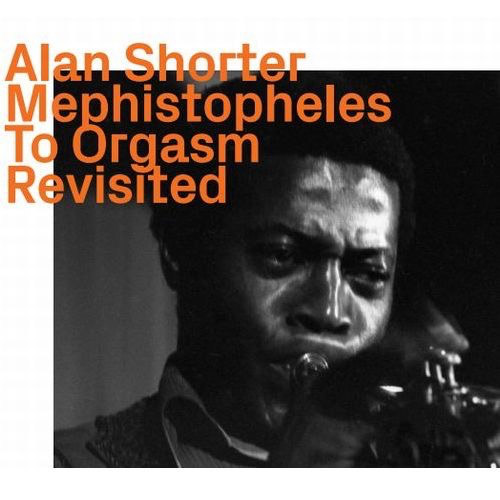

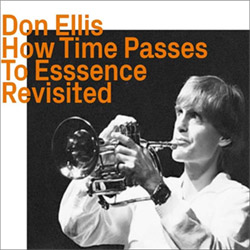

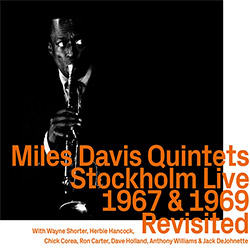
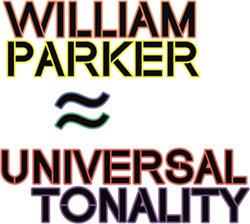
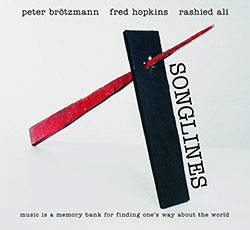

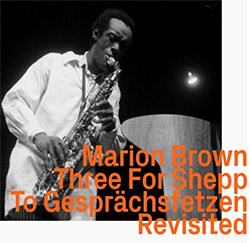



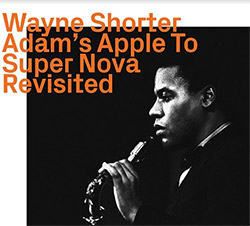
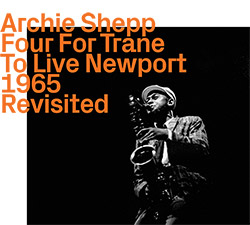
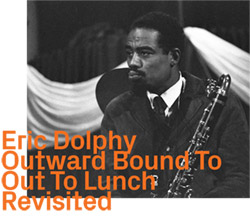
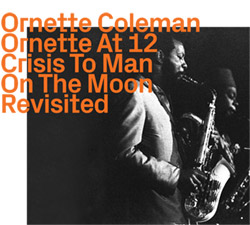

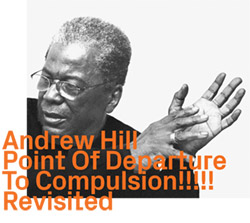
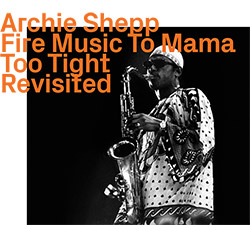

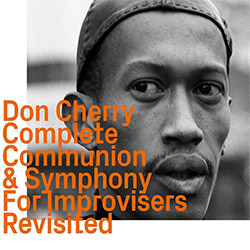
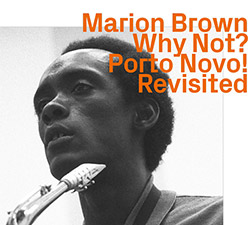
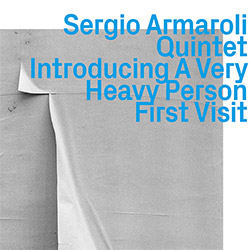





![111 (Michelle / Villamil): Live at Opus 40 [CASSETTE]](https://www.teuthida.com/productImages/misc4/35986.jpg)
![del Pino, Francisco / Charlotte Mundy: The Sea [CASSETTE]](https://www.teuthida.com/productImages/misc4/35987.jpg)

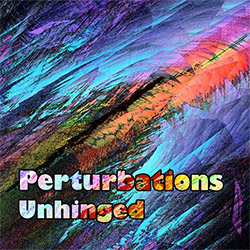

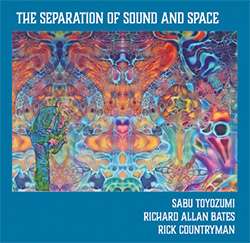


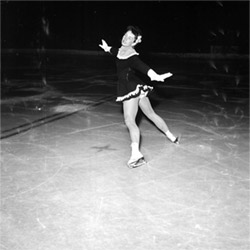
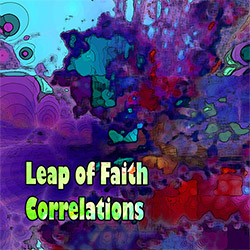

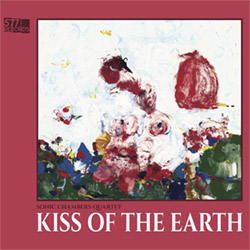

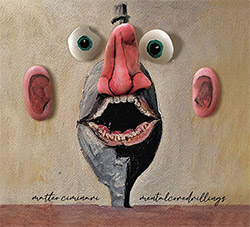
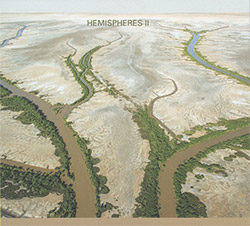
![Niblock, Phill / Anna Clementi / Thomas Stern: Zound Delta 2 [VINYL]](https://www.teuthida.com/productImages/misc4/34623.jpg)
![Yoko, Ono / The Great Learning Orchestra: Selected Recordings From Grapefruit [2 CDs]](https://www.teuthida.com/productImages/misc4/35841.jpg)

![Brotzmann, Peter / John Edwards / Steve Noble / Jason Adasiewicz: The Quartet [2 CDs]](https://www.teuthida.com/productImages/misc4/35975.jpg)
![Brotzmann, Peter / John Edwards / Steve Noble / Jason Adasiewicz: The Quartet [VINYL 2 LPs]](https://www.teuthida.com/productImages/misc4/35976.jpg)
![Thomas, Pat: The Solar Model of Ibn-Al Shatir [VINYL]](https://www.teuthida.com/productImages/misc4/36044.jpg)
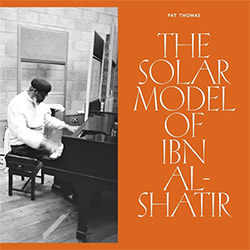



![Rodrigues, Ernesto / Nuno Torres / Guilherme Rodrigues: Whispers In The Moonlight - In Seven Movements [2CDs]](https://www.teuthida.com/productImages/misc4/35765.jpg)



![Cocks, Laura: FATHM [VINYL]](https://www.teuthida.com/productImages/misc4/36055.jpg)













![Schindler, Udo / Sandy Ewen / Damon Smith: Munich Sound Studies Vols. 4, 5 & 6 [3 CDs]](https://www.teuthida.com/productImages/misc4/35966.jpg)
![Turbulence Orchestra & Sub-Units: Smear Out the Difficulties (Double Live) [2 CDs]](https://www.teuthida.com/productImages/misc4/36048.jpg)

![Myers, David Lee : Tin Drop Tear [BOOK w/ DOWNLOAD]](https://www.teuthida.com/productImages/misc4/36030.jpg)

![Ackerley / Prymek / Turner: All Hope With Sleeping Minds [CASSETTE]](https://www.teuthida.com/productImages/misc4/35950.jpg)








![Olencki, Weston : Pearls Ground Down To Powder [VINYL]](https://www.teuthida.com/productImages/misc4/35956.jpg)
![Myers, David Lee: Oculus [2CDs]](https://www.teuthida.com/productImages/misc4/35857.jpg)


![dustsceawung: dustsceawung [CASSETTE w/ Download]](https://www.teuthida.com/productImages/misc4/35753.jpg)




![Halls of the Machine: Atmospheres For Lovers And Sleepers [CASSETTE w/ DOWNLOAD]](https://www.teuthida.com/productImages/misc4/35806.jpg)











![Zorn, John / JACK Quartet: The Complete String Quartets [2 CDs]](https://www.teuthida.com/productImages/misc4/35609.jpg)

![Lonsdale, Eden: Dawnings [2 CDs]](https://www.teuthida.com/productImages/misc4/35480.jpg)







![Sanna, Claudio: Compositori Sardi Contemporanei II [2 CDs]](https://www.teuthida.com/productImages/misc4/35317.jpg)







![Zurria, Manuel: Fame di Vento [3 CDs]](https://www.teuthida.com/productImages/misc4/35167.jpg)

![Electric Bird Noise / Derek Roddy: 8-10-22 [CD EP]](https://www.teuthida.com/productImages/misc4/35970.jpg)








![Elephant9 : Mythical River [VINYL]](https://www.teuthida.com/productImages/misc4/34624.jpg)



![Elephant9 with Terje Rypdal: Catching Fire [VINYL 2 LPs]](https://www.teuthida.com/productImages/misc4/35355.jpg)
![Deerlady (Obomsawin, Mali / Magdalena Abrego): Greatest Hits [VINYL]](https://www.teuthida.com/productImages/misc4/34876.jpg)







![Surplus 1980: Illusion of Consistency [CD]](https://www.teuthida.com/productImages/misc4/35069.jpg)
![Staiano, Moe: Away Towards the Light [VINYL + DOWNLOAD]](https://www.teuthida.com/productImages/misc4/35037.jpg)



![Caveira (Gomes / Sousa / Abras / Ferrandini): Ficar Vivo [VINYL]](https://www.teuthida.com/productImages/misc4/34643.jpg)
![Coley, Byron: Dating Tips for Touring Bands [VINYL]](https://www.teuthida.com/productImages/misc4/17906.jpg)

![Lost Kisses: My Life is Sad & Funny [DVD]](https://www.teuthida.com/productImages/misc4/lostKissesDVD.jpg)